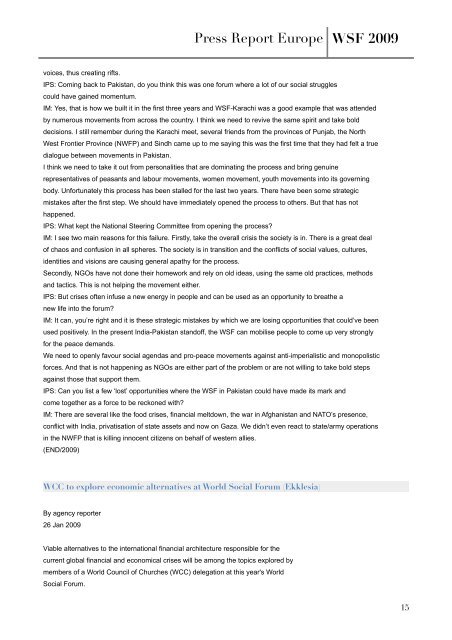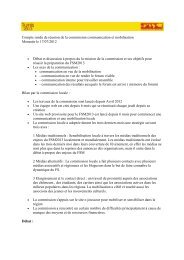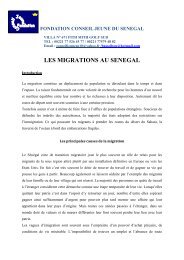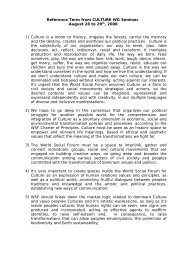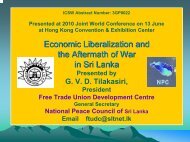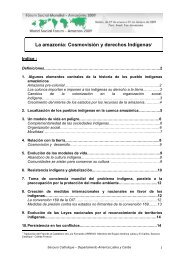Create successful ePaper yourself
Turn your PDF publications into a flip-book with our unique Google optimized e-Paper software.
voices, thus creating rifts.<br />
<strong>Press</strong> <strong>Report</strong> <strong>Europe</strong> <strong>WSF</strong> <strong>2009</strong><br />
IPS: Coming back to Pakistan, do you think this was one forum where a lot of our social struggles<br />
could have gained momentum.<br />
IM: Yes, that is how we built it in the first three years and <strong>WSF</strong>-Karachi was a good example that was attended<br />
by numerous movements from across the country. I think we need to revive the same spirit and take bold<br />
decisions. I still remember during the Karachi meet, several friends from the provinces of Punjab, the North<br />
West Frontier Province (NWFP) and Sindh came up to me saying this was the first time that they had felt a true<br />
dialogue between movements in Pakistan.<br />
I think we need to take it out from personalities that are dominating the process and bring genuine<br />
representatives of peasants and labour movements, women movement, youth movements into its governing<br />
body. Unfortunately this process has been stalled for the last two years. There have been some strategic<br />
mistakes after the first step. We should have immediately opened the process to others. But that has not<br />
happened.<br />
IPS: What kept the National Steering Committee from opening the process?<br />
IM: I see two main reasons for this failure. Firstly, take the overall crisis the society is in. There is a great deal<br />
of chaos and confusion in all spheres. The society is in transition and the conflicts of social values, cultures,<br />
identities and visions are causing general apathy for the process.<br />
Secondly, NGOs have not done their homework and rely on old ideas, using the same old practices, methods<br />
and tactics. This is not helping the movement either.<br />
IPS: But crises often infuse a new energy in people and can be used as an opportunity to breathe a<br />
new life into the forum?<br />
IM: It can, you’re right and it is these strategic mistakes by which we are losing opportunities that could’ve been<br />
used positively. In the present India-Pakistan standoff, the <strong>WSF</strong> can mobilise people to come up very strongly<br />
for the peace demands.<br />
We need to openly favour social agendas and pro-peace movements against anti-imperialistic and monopolistic<br />
forces. And that is not happening as NGOs are either part of the problem or are not willing to take bold steps<br />
against those that support them.<br />
IPS: Can you list a few ‘lost’ opportunities where the <strong>WSF</strong> in Pakistan could have made its mark and<br />
come together as a force to be reckoned with?<br />
IM: There are several like the food crises, financial meltdown, the war in Afghanistan and NATO’s presence,<br />
conflict with India, privatisation of state assets and now on Gaza. We didn’t even react to state/army operations<br />
in the NWFP that is killing innocent citizens on behalf of western allies.<br />
(END/<strong>2009</strong>)<br />
WCC to explore economic alternatives at World Social Forum (Ekklesia)<br />
By agency reporter<br />
26 Jan <strong>2009</strong><br />
Viable alternatives to the international financial architecture responsible for the<br />
current global financial and economical crises will be among the topics explored by<br />
members of a World Council of Churches (WCC) delegation at this year's World<br />
Social Forum.<br />
15


